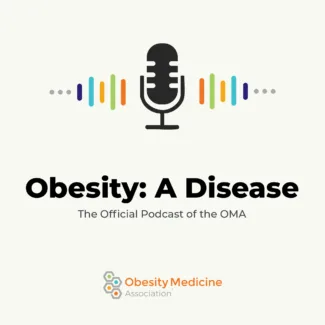Obesity Medicine Resources
Helpful Resources to Support Your Practice
Evidence-based obesity medicine research
Obesity Pillars® Journal
Our medical journal is dedicated to publishing evidence-based research for health care clinicians in the field of obesity medicine. Obesity Pillars® serves as a resource to assist clinicians to deliver patient-centered obesity medicine care in alignment with the OMA’s four pillars of obesity treatment: Nutrition Therapy, Physical Activity, Behavioral Modification, and Medical Interventions.

Obesity Algorithm
The Obesity Algorithm® is a comprehensive clinical tool designed to guide healthcare professionals in the assessment and management of obesity. This algorithm provides a structured framework for evaluating patients with obesity, offering a step-by-step approach to diagnosis, treatment, and ongoing care. The Obesity Algorithm is regularly updated to reflect the latest research and clinical guidelines.

Pediatric Obesity Algorithm
The Pediatric Obesity Algorithm® offers healthcare providers a structured approach for managing overweight and obesity in children and adolescents. This evidence-based tool draws from scientific research, medical knowledge, and the practical insights of pediatric clinicians who regularly address weight-related issues in young patients.

OMA Academy
Customize your obesity medicine education and access the entire on-demand library of CME, ABOM Exam study materials, handouts, and other practical resources in the Obesity Medicine Academy.

Pediatric Resources
OMA's pediatric resources encompass a wealth of educational materials, clinical guidelines, and research-based insights to aid healthcare professionals in effectively managing and preventing obesity in children and adolescents. OMA's commitment to combating pediatric obesity is reflected in its extensive pediatric-focused resources, empowering healthcare professionals to make a meaningful impact on the health and well-being of young patients.
OMA Blog

Beyond the Plate: OMA Emphasizes Comprehensive Obesity Care in Response to New Dietary Guidelines
The Obesity Medicine Association (OMA) supports many aspects of the new Dietary Guidelines for Americans , including: A strong emphasis on reducing intake of ultra-processed foods and added sugars A focus on nutrient-dense foods containing fiber, including fruits, vegetables, and whole grains The recommendation to limit saturated fat intake to no more than 10% of total daily calories and to prioritize healthier unsaturated fats Emerging evidence highlighting the importance of nutrition in supporting gut microbiome health Support for extended breastfeeding as beneficial to both maternal and child health At the same time, the OMA emphasizes that obesity is a chronic, relapsing and progressive disease process affecting weight homeostasis.

A Clinician's Guide to Non-Exercise Activity Thermogenesis (NEAT)
Learn how non-exercise activity thermogenesis (NEAT) supports obesity treatment and explore clinical guidance to boost patient outcomes.

The Health Crisis Of Digital And AI Natives: Childhood Obesity In Gen Alpha And Gen Beta
Childhood obesity rates are climbing worldwide, raising significant public health concerns in an increasingly technology-driven and sedentary world. This trend increases the risk of both short- and long-term health problems, including other serious chronic diseases, mental health challenges, and life-threatening conditions.

Official podcast of the OMA
Obesity: A Disease
Podcast episodes provide valuable insights into treating the disease of obesity and better equip clinicians to understand and engage in treating this disease.
Obesity Medicine Job Board
The OMA job board is a comprehensive, dynamic platform, and a valuable resource for job seekers. Discover diverse job listings from reputable organizations spanning industries such as technology, healthcare, psychology, and more. Users can browse through a variety of job postings, including full-time, part-time, remote, and internships, catering to a broad spectrum of career needs. The OMA job board also offers a job submission feature where users can submit their own job listings.
